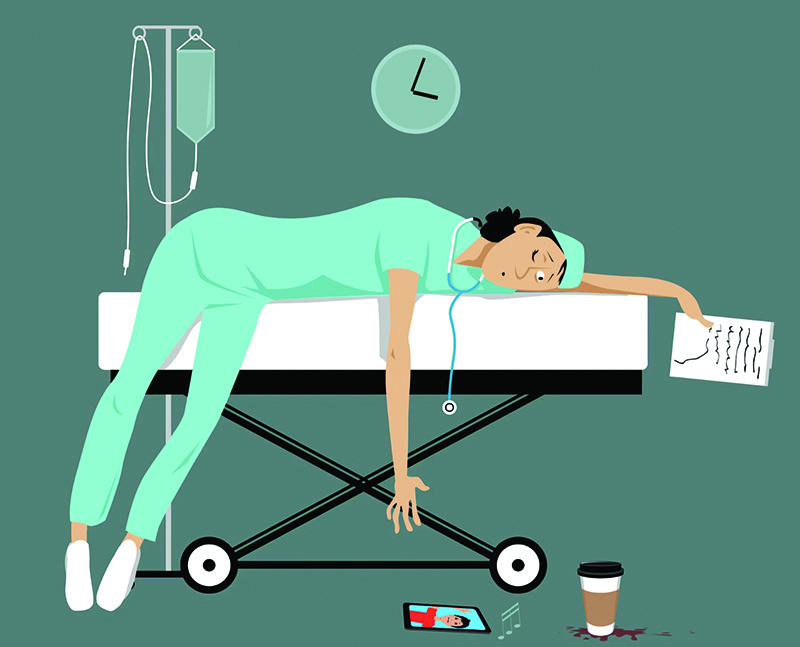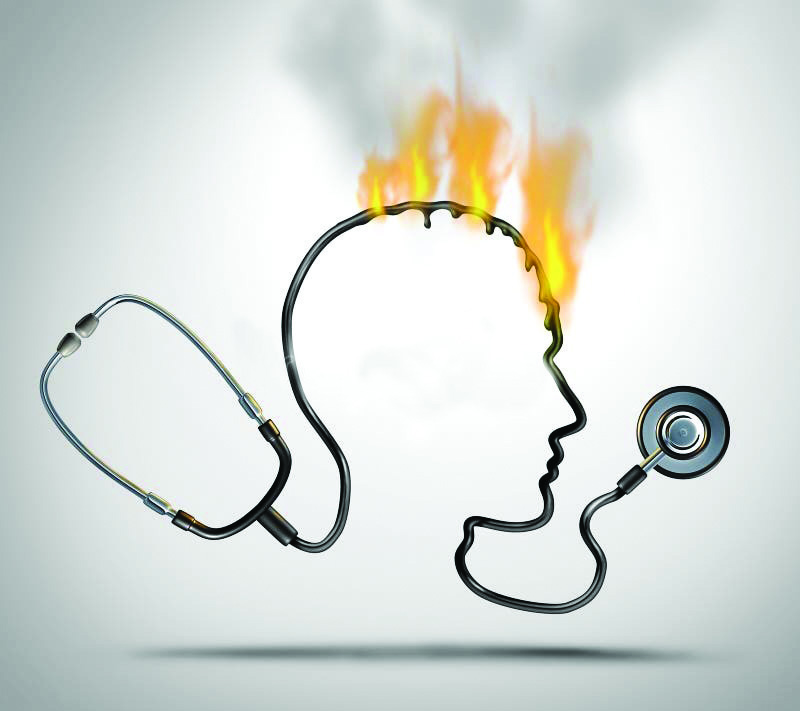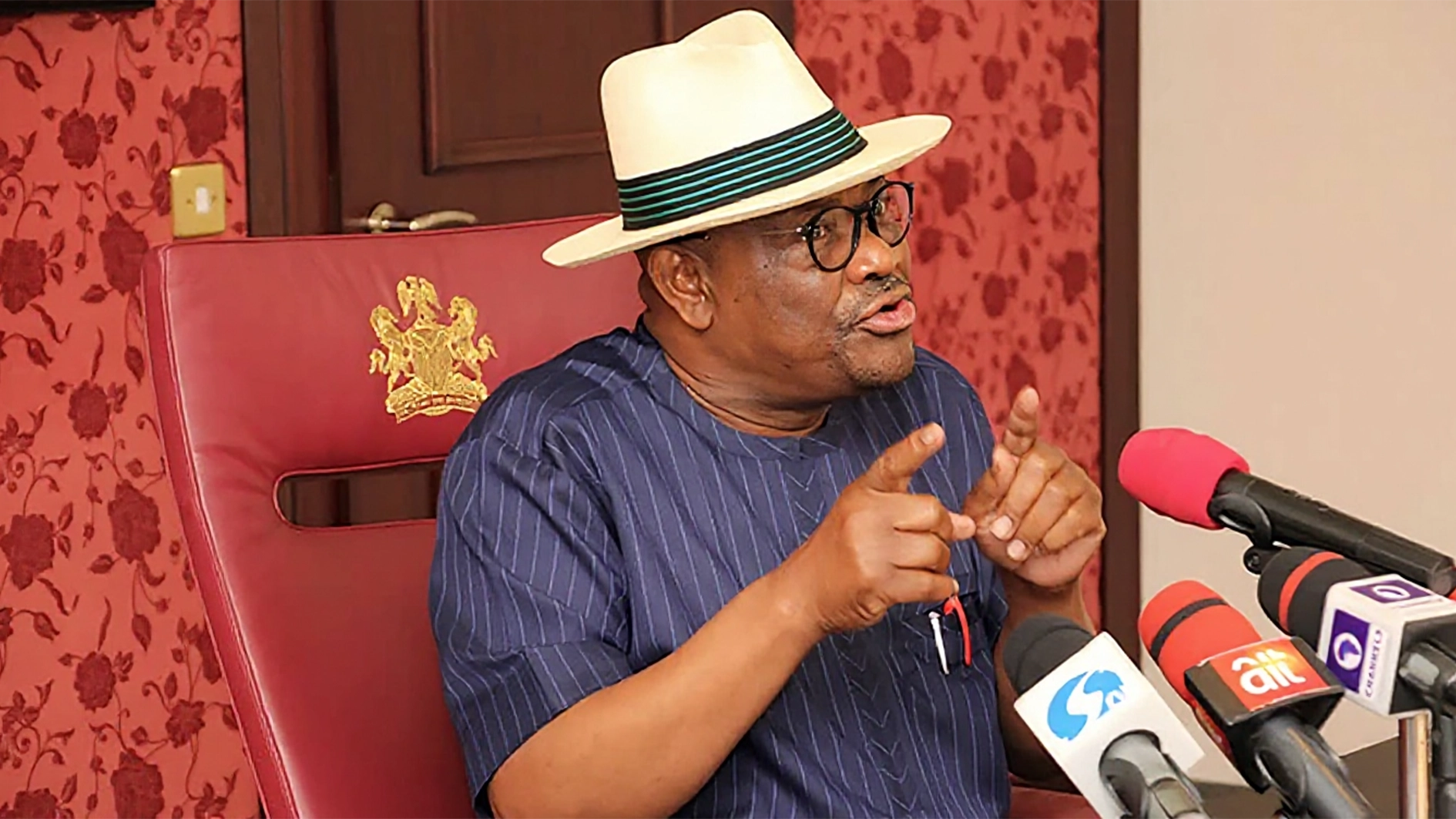The growing exodus of doctors has pushed Nigeria’s health system to a breaking point, bequeathing to it pathetic legacies, including severe staffing shortages, horrible conditions of service, burnout, and preventable deaths. The worsening doctor-to-patient ratio on its part fuels preventable deaths among patients. With public hospitals overwhelmed by queues and staff stretched beyond limits, both patients and health workers remain trapped in crisis, MUSA ADEKUNLE reports.
At exactly 8:45 a.m., Busayo Ajayi (not real name) walked into Oshodi-Isolo Primary Health Centre in Lagos with severe body pain. She had delayed her visit for days, fearing the long wait, but her worsening symptoms left her with no choice. By 2:00 p.m., she was still seated on the same wooden bench.
“I waited almost five hours before I was attended to,” she said. “Only one doctor was on the ground. I wanted to go home and take the risk because people beside me said they had been here before 8:00 a.m.”
Next to her sat a mother and her 10-year-old daughter, who had also been waiting all morning. “I have been here before 8:00 a.m., and I have not seen the doctor,” the woman said.
Busayo admitted the words cut deep. “If it had been an emergency, something terrible would have happened. Even I could have collapsed there. It was that day that I realised that patients and doctors are both trapped in suffering.”
At the eye clinic of the University of Calabar Teaching Hospital (UCTH), another patient, Mrs Ekanem, described how hope slowly evaporated from people’s faces as they waited long hours to see a doctor.
“I got there as early as 7:00 a.m., but it was past 4:00 p.m. before I was attended to by the doctor. The doctors were clearly doing their best, but there are just not enough hands,” she lamented.

At the Olabisi Onabanjo University Teaching Hospital (OSUTH), a patient, who simply identified herself as Chiamaka, who underwent a routine check-up, stated that the delays were exhausting from start to finish.
“Getting to see the consultant on the seat took more than three hours. Then, heading to make payments for my medical tests took another couple of hours. Some test results, such as those for malaria, came quickly (in about seven days), but others took weeks to complete. It was draining,” she explained.
Up North, the situation is no different. For instance, at the Usmanu Danfodiyo University Teaching Hospital (UDUTH) in Sokoto, resident doctors are overwhelmed by an impossible workload as the hospital struggles to serve over 10,000 patients every week, a common issue nationwide.
In providing details, the president of the hospital’s Association of Resident Doctors, Dr Bello Ibrahim, said the manpower crisis has worsened despite fresh recruitment attempts.
According to him, a February and March exercise aimed at hiring 100 resident doctors ended with only 60 showing up for interviews, 45 completing documentation, and just 15 eventually assuming duty.
“In the surgery department where I work as a senior registrar, only one resident out of the 15 intended was employed. Imagine one person doing the work of 15. That is why you see residents almost on alternate-day calls. Sometimes, one person is on call for a whole week,” he said.
Ibrahim, who painted a pathetic picture of long queues and patients, with some lying on stretchers at the Accident and Emergency unit, waiting for hours to be moved into the wards, added that UDUTH remains the only major referral centre serving not just Sokoto, but also Kebbi, Zamfara, Niger State, Gusau, and even parts of the Niger Republic and Cotonou.
“To recap it all, we do not have up to 350 doctors across all specialities, including consultants and registrars. In fact, the resident doctors we currently have are just a bit over 200. So, if you compare that with the inflow of patients, it is way below the World Health Organisation standard,” he added.
Overworked doctors, fragile system
PATIENTS are not alone in their pain. Doctors say they, too, are victims of the system.
In Lagos, a doctor at the Federal Medical Centre, Ebute Metta, explained how colleagues are pushed beyond their limits. “Some doctors work 24-hour shifts. The alternate day does not mean rest. At one point, the hospital employed seven doctors and all resigned within a year because of how they were treated,” he said.
In Enugu, at the University of Nigeria Teaching Hospital (UNTH), a doctor who did not want his name mentioned told The Guardian that even when he fell ill, the only sympathy he received from senior colleagues was, ‘quickly finish your work so you can go and rest.’
“Sick leave hardly counts unless you have cancer or kidney failure. I was once sick and worked through illness for days because if you don’t do it, no one else will,” he said.
Another doctor at FMC Abeokuta painted a similar picture. “I work every working day, sometimes 48 hours on weekends. It is sad. We have tried to fight it, but the government is not making policies to help,” he said.
The President of the Association of Resident Doctors at the University College Hospital (UCH), Ibadan, Dr Gboyega Ajibola, stated that resident doctors are overwhelmed by the workload created by severe staffing shortages. He explained that duties meant for 10 to 12 doctors are now being handled by just two or three, forcing them to work long hours without rest.
 Ajibola noted that the crushing workload is pushing younger doctors away from clinical practice. Many graduates, he said, are choosing not to do residency in Nigeria after seeing how exhausted their seniors are. Others write foreign examinations and leave the country entirely, while those who remain face poor pay, dilapidated training facilities, and disillusionment as even consultants and professors resign for better jobs abroad.
Ajibola noted that the crushing workload is pushing younger doctors away from clinical practice. Many graduates, he said, are choosing not to do residency in Nigeria after seeing how exhausted their seniors are. Others write foreign examinations and leave the country entirely, while those who remain face poor pay, dilapidated training facilities, and disillusionment as even consultants and professors resign for better jobs abroad.
“Right now, the work that should be done by 10 to 12 people, 2 to 3 people are grappling to do. After the normal routine of resuming in the morning and leaving at night, we also take calls. Calls mean that after regular work is done, you stay behind until 8:00 a.m. the next morning, and then you continue working through the day. It is sad,” he said.
“The UCH is supposed to be the last point of referral, but even cases that should be handled at primary health centres still get here. Our patients are plentiful, and the workload at UCH can be overwhelming at times. Even patients now see the fatigue in doctors. The number of people coming has dropped because they see doctors who have been working since yesterday morning still on their feet today.”
The President of the Association of Resident Doctors at UCTH, Dr Emmanuel Idoko, told The Guardian in Calabar that the number of resident doctors in the hospital has dropped drastically from over 600 to just above 250. He added that there are fewer than 150 consultants currently serving across the entire state.
The decline, he explained, has pushed the doctor-to-patient ratio in Cross River to about one physician for every 5,000 patients, far below the World Health Organisation (WHO) recommendation of one to 600.
“When we had over 600 doctors, I attended to about 30 patients daily. Now, with reduced manpower, I see more than 70 patients a day. This is what we call burnout,” Idoko said.
He attributed the situation largely to brain drain, noting that nearly 98 per cent of doctors who leave the state migrate abroad in search of better pay and welfare. Others, he added, relocate to neighbouring states with stronger security systems and more competitive salaries.
“Doctors are not just leaving because of remuneration. The hospital environment, lack of equipment, and insecurity in some areas also drive them away,” he explained.
Idoko stressed that urgent measures are needed to stem the tide, including equipping hospitals with modern facilities, improving security, and offering remuneration that will encourage doctors to remain in the system. If these gaps are addressed, many doctors who have left will even return to practice in Nigeria,” he said.
Downing tools over poor welfare, working conditions
IN Abuja, the Association of Resident Doctors (FCT) Branch, at its Emergency General Meeting on September 14, 2025, resolved to embark on an indefinite strike from 8:00 a.m. on Monday, September 15, 2025. The union said the action was to press government and hospital management to demonstrate a sincere commitment to improving doctors’ welfare and safeguarding the health of FCT residents.
“We’re going to need as many as 200 or thereabouts (doctors). We don’t even have anything close to that,” the General Secretary of the Association of Resident Doctors, FCTA, Affiong Agbor, said.
Just about the same time that resident doctors in the FCT downed tools, the National Association of Resident Doctors (NARD) declared an indefinite strike on September 12, 2025, following its Emergency General Meeting in Abuja. Again, the doctors cited poor welfare, manpower shortages, and the government’s failure to address long-standing demands, including payment of arrears and better working conditions.
Expectedly, the strike paralysed services across many federal hospitals, leaving patients stranded. After negotiations with the Federal Ministry of Health and interventions from key stakeholders, NARD suspended the action on Sunday, September 14. The association said it called off the strike to give the government time to implement agreements reached, but warned of future action.
Death and the young resident doctor
TRAGEDY struck earlier in September at the Rivers State University Teaching Hospital in Port Harcourt when Dr Oluwafemi Rotifa, a young resident doctor, was found lifeless in the call room.
Initial reports suggested he had collapsed after a 72-hour shift. However, a report sighted by The Guardian indicates that the Nigeria Medical Association (NMA) in Rivers State disputed that claim.
According to NMA spokesperson Siene Orogun, Rotifa had been unwell for days and was excused from duty. Despite his condition, he chose to remain in the call room close to his colleagues. “Even his mother wanted him to come home, but he said he preferred to be in the call room. At least, when the guys go to work, they will come in to gist and play together,” Orogun explained.
She added that Rotifa had eaten and watched football with colleagues before they left to attend to patients. When they returned around 2:00 a.m., they found him lifeless. He had been on malaria medication and had administered intravenous Quinine to himself after his condition failed to improve.
Rotifa was buried on Friday, September 5. His death has deepened concerns over the fragile state of the healthcare system, where staffing shortages and the pressure of working conditions continue to claim lives, both of patients and of those meant to care for them.
The President of the National Association of Resident Doctors (NARD), Dr Osundara Tope, described the tragedy as another stark reminder of the dangers doctors face. “There is no policy to safeguard doctors from overwork. Nobody pays overtime. Sometimes one name is on the call roster perpetually,” he said.
He added that poor manpower remains a major driver. “Nigeria still struggles with a doctor-to-patient ratio of 1 to 10,000. We are losing doctors to burnout, emigration and preventable death,” he said, calling for a one-for-one replacement policy and better welfare to stem the losses.
World Health Organisation warns as mass exodus leaves wards empty.
THE World Health Organisation (WHO) has warned of looming danger, predicting a global shortage of 10 million health workers by 2030, mostly in low-income countries like Nigeria.
According to the Federal Ministry of Health and Social Welfare, Nigeria has a skilled health worker density of just 3.9 per 10,000 people, far below the WHO’s recommended minimum. The factors behind this include low production of health workers, poor management, and persistent political and economic crises.
The Coordinating Minister of Health and Social Welfare, Prof Muhammad Pate, revealed in April that over 16,000 Nigerian doctors have left the country in the last five to seven years, worsening the ratio to 3.9 doctors per 10,000 people.
“This is not just about people leaving. It represents a fiscal loss. The estimated cost of training one doctor exceeds 21,000 dollars. That figure reflects the magnitude of public financing walking out of our countries,” he said at a workshop in Abuja.
He admitted that nurses and midwives have also emigrated in large numbers, leaving rural areas critically underserved. Pate said the government is now pursuing a National Policy on Health Workforce Migration under the Renewed Hope Agenda to retain doctors, improve welfare, and negotiate ethical recruitment frameworks with destination countries.
 Call rooms unfit for short rest
Call rooms unfit for short rest
BEYOND policy, the daily reality remains bleak. Many hospital call rooms are little more than storage spaces with torn mattresses, broken fans, and leaking roofs. Meals are irregular. Sleep is short.
“You work till midnight, sleep a few hours, and wake up early to resume,” a doctor in Enugu said.
For many young doctors, the toll is as much mental as it is physical. Cases of depression are rising. Some abandon practice entirely. Others seize opportunities abroad at the first chance.
The President of the Association of Psychiatrists in Nigeria (APN), Prof Taiwo Obindo, told The Guardian that doctors on the ground are overstretched. He cited the Federal Neuropsychiatric Hospital, Yaba, which recorded a 100 per cent increase in the number of psychiatric patients admitted in 2023 alone. “Even the doctors there have their own mental health at risk, given the rising number of admissions,” he said.
“A few are produced, but they do not have jobs. Some have to work in private facilities, which are not well-paying. Government needs to do more.”
Underfunded, overlooked…
NIGERIA spends just 5.18 per cent of its 2025 national budget on health—N2.48 trillion—far below the 15 per cent commitment made under the 2001 Abuja Declaration and reaffirmed in the 2013 Abuja+12 Declaration. Key allocations include N402 billion for health infrastructure and N282.65 billion for the Basic Health Care Provision Fund (BHCPF).
Meanwhile, the Nigerian Medical Association (NMA) has described the shortage of doctors as unsustainable. At its 2025 Annual Delegates Conference in Katsina, the NMA President, Dr Bala Audu, warned that brain drain has pushed doctors to the breaking point.
He also confirmed that about 15,000 doctors left the country in five years. “If you divide the estimated population of 240 million by the number of practising doctors, which is 30,000, it gives you a doctor-to-patient ratio of 1 to 8,000,” he said.
He identified poor working conditions and poor pay as the leading drivers of the exodus. “There are difficulties pushing doctors to leave, one of which is poor working conditions and remuneration,” he added.
The association demanded the payment of seven months’ arrears owed to doctors and called for universal implementation of the Consolidated Medical Salary Structure (CONMESS). It also rejected the proposed National Prescription Policy, insisting that only doctors are trained to prescribe medicines safely.
The National Association of Resident Doctors (NARD) has also repeatedly warned that doctors are “dying in silence” while government responses remain inadequate.
Lessons from the UK, USA
IN the United States, resident doctors are capped at 80 hours a week with compulsory rest periods. In the United Kingdom, strict rules regulate maximum hours, and breaches attract penalties.
Stakeholders say that Nigeria has no clear policy regulating maximum work hours for doctors. This gap leaves room for extreme rosters, such as one that surfaced on X showing a certain Dr Audu’s name listed for duty every single day of the month.
The Chairman of the Nigerian Medical Association (NMA) in Lagos, Dr Babajide Saheed, said hospital management and government are concerned only with service delivery to patients, with little regard for the welfare and health of healthcare providers. “Doctors should be allowed to rest when they are tired. They should be given sick leave when they are sick,” he said.
Patients bear costly consequences of overworked doctors
WITHOUT a doubt, the ripple effects of the unfortunate milieu extend far beyond medical staff. Exhausted doctors are more likely to make mistakes, while misdiagnoses and surgical errors increase. Patients lose faith in public hospitals and turn instead to expensive private clinics or risky self-medication. Preventable deaths rise in waiting rooms across the country.
Experts have advised the government and hospital managements to prioritise the welfare and security of healthcare workers by ensuring better remuneration, improved welfare packages, and addressing the root causes of the “Japa” trend to retain more hands in the sector.
They stressed that doctors should not be made to exceed 24-hour call duties, must be allowed adequate rest and sick leave when unwell, while strenuous work schedules should be reduced and decent call rooms provided to enable proper recovery during shifts.






